The world is starting to re-open, but that doesn’t mean that it will look the same once people start to leave their homes. New habits and technologies have emerged over the course of the past year, and it’s not yet clear what impact that will have on people’s day-to-day lives.
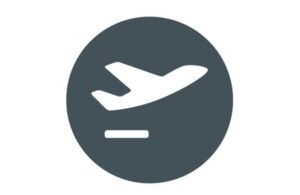
That’s especially true in the travel industry. Screening requirements could be onerous even before the pandemic, and things have only become more complicated now that health has become such an important consideration. Health Pass apps offer a glimpse at what the future might look like, and show how digital technologies are dramatically increasing the amount of personal information that organizations have at their disposal when making a decision.
One Step at a Time
According to SITA, border security has typically been handled with a defence-in-depth model, which breaks the travel screening process into several stages that begin before the traveler even gets to the airport. The initial screening occurs when someone applies for a visa and receives permission to travel. A second occurs when someone books a flight and the airline shares its Passenger Name Record (PNR) with government officials at its intended destination in the days before departure. The traveler will then be vetted one final time when they check-in at the airport before they board their flight.
At each point, the traveler’s personal information will be cross-referenced with databases, watchlists, and other sources to ensure that they do not present any risk to the country that will be welcoming them. They can be denied entry if they set off any red flags at any point during the booking and travel process, and the government can tell the airline not to let a passenger board if there are any issues with the Advance Passenger Processing (APP) data they receive. The fact that there are multiple screenings means that the host government has multiple opportunities to spot potential troublemakers, and adds redundancy to the process.
The Small Things
Of course, there’s nothing particularly noteworthy about the fact that governments are trying to screen the people crossing their borders. If anything, COVID-19 only demonstrated how priorities can shift over the years. Governments were worried about terrorism in the wake of 9/11. Now they’re more worried about public health, and the threat that comes from an infection carried on an international flight.
The biggest changes occurred at the technological level. COVID-19 prompted digital transformation in the air travel industry as airports and airlines pivoted to mobile screening solutions that did not require any physical contact. That transformation then gave governments the ability to micromanage their border protocols, and made it easier to keep track of more and more personal information.
That felt like a necessity as screening criteria proliferated during the pandemic. Many countries shut down everything but essential travel, but that ‘essential’ designation was not nearly as black-and-white as the name would suggest. For example, some countries still welcomed citizens who lived abroad and were returning home to visit loved ones, even while denying access to foreign nationals.
The result was a hodgepodge of different criteria that took factors like country of origin, health status, citizenship, and professional standing into account. Governments needed a way to consolidate traditional screening categories with several new ones, and to cross-check everything to make sure that each traveler could tick off all of the necessary boxes.
For Your Health
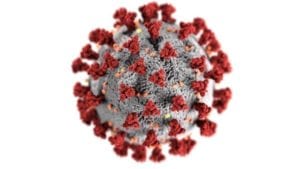
Health Pass applications give border agents the ability to track all of those entry requirements. The apps (including SITA’s own Health Pass) were built during the pandemic to enable people to verify their health status without compromising their privacy. To that end, they allow people to store their vaccination records (or the results of COVID-19 tests) on a mobile device. Individual travelers can then present the app at the border to prove that they are free of COVID-19 without disclosing any other personal information – at least during that in-person interaction.
The catch is that airlines and border agencies already have access to a wealth of personal information, covering everything from name and country of origin through to their facial biometrics (in many cases). Health Pass apps link someone’s health information to their digital identity, and governments are checking both when someone wants to enter their country.
All Aboard
In practice, Health Pass apps give governments the ability to be much more nuanced with their screening criteria. They could welcome tourists from countries with low infection rates, or bar access to unvaccinated citizens from infection hotspots. The tech should help kickstart the economy because it creates safe pathways for tourism and commerce, while still giving administrators the tools they need to prevent coronavirus spread. For instance, governments could change their criteria at a moment’s notice to block travel if there is an unexpected outbreak or some other threat.
The question is to what extent governments will actually use that ability – and whether it will extend beyond the airport. The same app that lets someone get on a plane could be used to determine whether or not they get a seat at a table in a restaurant, and the tech is so intuitive that the customer experience would be roughly the same in both situations.
However, the widespread use of such an app does raise concerns about privacy. In the case of the restaurant, the proprietor might know that their patrons are free of COVID-19, but may not know much else. They are trusting the app to verify the identities of its users, and trusting the testing lab to make sure that each test is assigned to the proper individual. Governments, on the other hand, will likely have access to much more complete digital identity profiles. With so much information, they could theoretically set criteria (both for travel and other programs) that are biased or otherwise invasive in a number of different ways. If they want to realize the efficiency benefits of Health Pass apps, they will need to build trust with the public and guarantee that their information will be used responsibly.
–
July 28, 2021 – by Eric Weiss


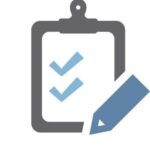

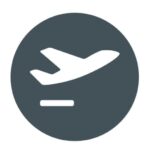

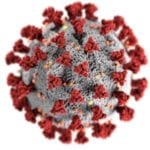
Follow Us